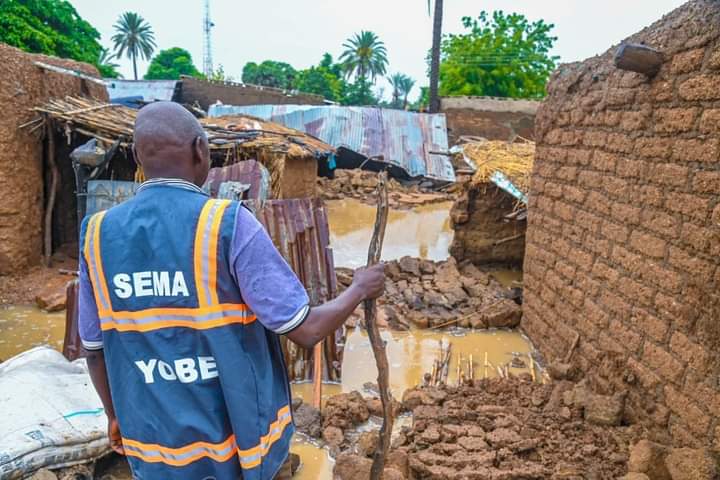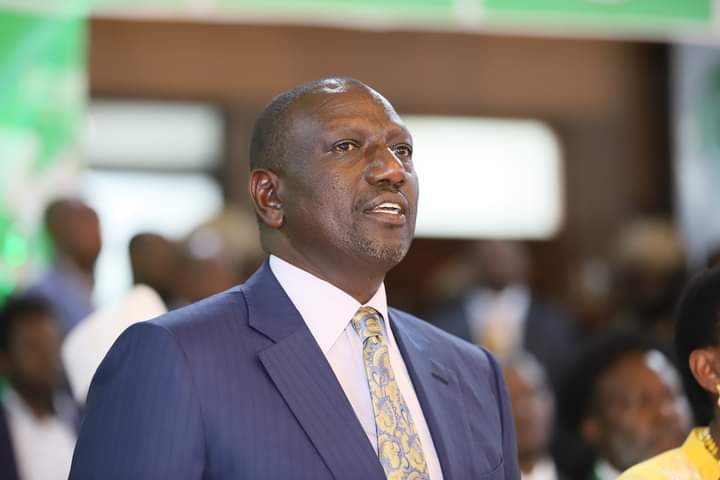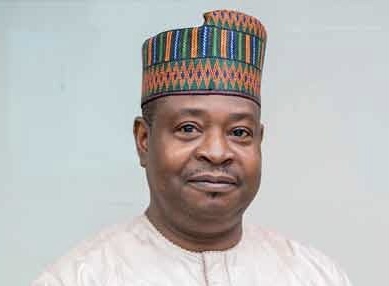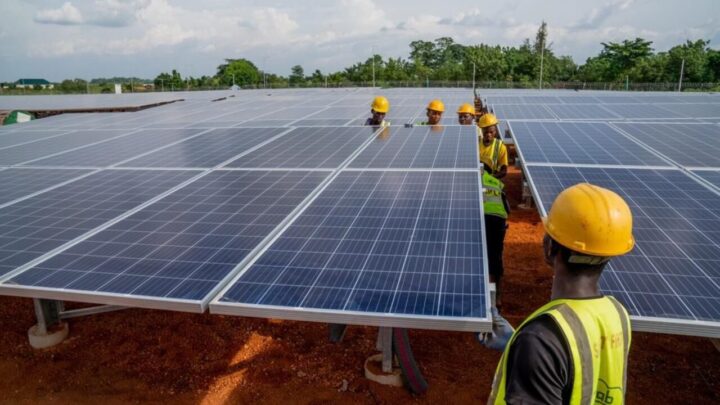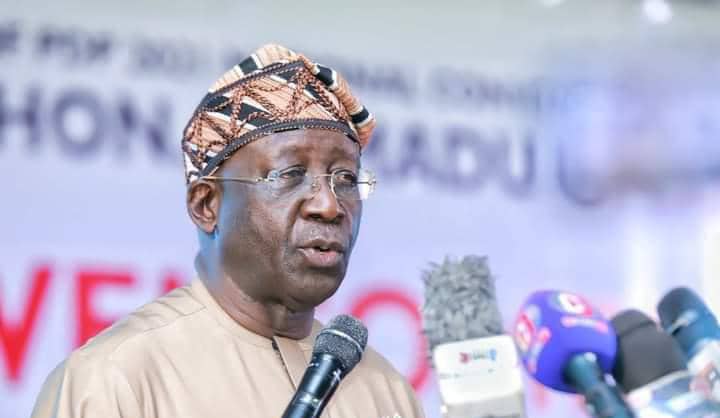Photo: Yobe State Emergency Managament Agency
Despite directly impacting our communities, health and livelihood, climate-related reports usually take a back seat to dominant news beats like politics and business. Climate Watch aims to ensure you never miss important stories on climate change and actions being taken towards limiting its impact.
Here is a round-up of last week’s climate stories:
- The Nigeria Meteorological Agency (NiMet) says the heavy rainfall currently being experienced in the north of the country will begin to subside by Wednesday. In its weekly forecast, the agency said the rainfall will continue with thunderstorms until Wednesday when some relief is expected. It added that within the next three days, temperatures are expected to be in the 20s over most parts of the north, but the north-west is likely to report a high of over 30°C in Sokoto, while the north-east is likely to report about 29°C in parts of Yobe and Maiduguri. In the central cities, maximum temperature is expected to hold over parts of Niger, while Kaduna is likely to record a 26°C in temperature. It added that the current cool weather conditions in the south-west will remain at about 26°C and 27°C, while the south-east will have a temperature of 28°C and 29°C.
- In a bid to tackle environmental challenges in the 19 northern states and the federal capital territory (FCT), the federal government has partnered with the World Bank on the Agroclimatic Resilience in Semi-Arid Landscapes (ACReSAL) project. The World Bank already approved a $700 million credit from the International Development Association (IDA) for the project. In a technical workshop in Lagos last week, Mohammed Abdullahi, minister of environment, said the implementation of the project would lift millions of people out of poverty, improve the livelihoods of Nigerians, and tackle the farmer-herder crisis.
- A recent research found that Africa only received 14 percent of the total finance needed for tackling climate change in the continent in 2020. The research, done by Climate Policy Initiative (CPI), an analysis and advisory organisation, holds that the climate finance needed in Africa is estimated at $250 billion per year, but only about $29.5 billion was mobilised for Africa in 2020. The report listed barriers to climate investments in the continent to include lack of enabling skills, infrastructure, data and financial markets depth, governance issues, and currency risks. You can read more here.
- The Labour Party has unveiled addressing climate change as part of its plans for the youths in 2023. Pat Utomi, professor of political economy, said the party will set up climate networks for youths across the country. He encouraged the youths to rise up to environmental challenges, adding that the month of August is significant because Africa is observing its climate month and the world is celebrating youths. He said in 2022, when Africa hosts COP27 in Egypt, the Labour Party will, through systematic programmes, ensure that Nigerian youths will begin to take over their country by tackling environmental challenges. Read more here.
Add a comment
